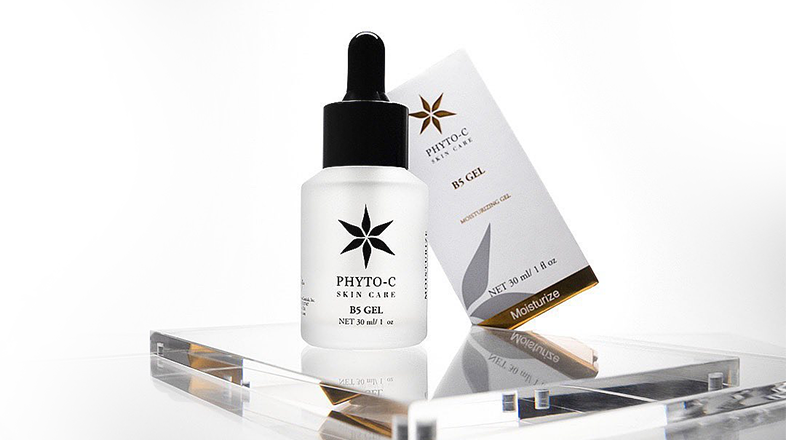Many individuals with oily skin only view oil-control products as essential because they believe they need no other skincare. Your skin requires vitamin C at its core to maintain its healthfulness. Breakouts and pore enlargement, together with skin dullness, describe the typical issues experienced by people with oily complexions. Vitamin C both decreases inflammation brightens the complexion and controls abnormal sebum production. Vitamin C helps boost collagen for firm skin that stays young along with protection against both pollution exposure and sun damage over time. People tend to avoid vitamin C serum for oily skin benefits because they maintain the misconception that oily skin does not need hydration or antioxidants. Applying a suitable vitamin C serum both controls oil sebum levels and improves skin luminosity and strength.
Is Your Skin Oily? Find Out If best vitamin C serum for oily skin Works for You
Mixing oil with skin debris and dead cells through pores causes them to block, which leads to acne development. Free radicals find neutralization through Vitamin C while this ingredient helps the skin repair itself. The strong ingredient aids acne scar fading alongside dark spot reduction, which allows the skin to achieve an even complexion.
Looking at your skin texture day by day will help you determine whether you have oily skin. Your face becomes shiny mainly on your forehead and nose, and your chin, besides showing signs of clogged pores and acne, indicates oily skin. Your skin maintains a greasy feel after washing while makeup loses its hold within a brief period. Oily skin requires hydration, yet inappropriate product choices might cause your skin oiliness to increase. The right selection of vitamin C serum enables it to benefit oily skin types.
A water-based, lightweight formula penetrates the skin rapidly while managing sebum production and providing skin-brightening abilities that avoid pore clogging. The treatment helps patients reduce acne scars and provides defense against environmental damage. The application of weighty oil-based serums should be avoided since they tend to enhance surface shine. The best vitamin C serum for oily skin will benefit your routine by balancing oil production when combined with light hydration and maintaining skin health without stickiness.
The Biggest Myths About Vitamin C Serum for Oily Skin
The idea that face serum for oily skin turns into increased oiliness is incorrect according to current scientific evidence. A properly developed Vitamin C serum penetrates quickly without producing excessive stickiness when it dries. Through its regulating mechanism, the product controls sebum output, which stops excessive lubrication while blocking pores and preventing shine.
Vitamin C is commonly thought to benefit only people with dry skin. The skin-hydrating effects come hand in hand with its anti-inflammatory properties, which especially benefit individuals who experience acne and have oily skin.
Vitamin C does not cause breakouts even though most instances of breakouts come from using inappropriate formulations or ingredients. People with oily skin should opt for a non-comedogenic, water-based serum because it protects from pore blockage and skin irritation.
People mistakenly think best face serum for oily skin is not needed when sunscreen is present since the two elements work better together to protect against sun damage. The widespread incorrect beliefs about using this ingredient inhibit people from exploiting its benefits adequately.
How to Choose the best face vitamin C serum for oily skin
The selection process of best face vitamin C serum for oily skin affects both result performance and unwanted effects for people with oily skin types. People with oily skin should choose lightweight skincare products that absorb quickly without creating a heavy load on the skin's surface. L-ascorbic acid stands as the strongest type of vitamin C, which works well yet irritates skin unless safely stabilized. Other derivatives like sodium ascorbyl phosphate or magnesium ascorbyl phosphate offer similar benefits with less irritation.
The skin benefits from niacinamide and ferulic acid combined with vitamin C because they strengthen its performance and control oil secretion. Excessive oils and silicones or artificial scents present in serums should be avoided because they block pores and lead to breakouts. Every person with oily skin must select skin-specific formulations because these products combine optimal absorption with minimum irritation to achieve maximum results on their skin texture and tone.
Common Mistakes That Make Vitamin C Serum Useless
The improper use of Vitamin C serum starts with applying an excessive amount of the product. Many people think applying more serum to their face will speed up results, yet this practice causes irritation together with redness as well as increased sensitivity. Using vitamin C with incompatible substances stands as another significant mistake made by users. Using Vitamin C serum with benzoyl peroxide along with AHA or BHA products in your skincare routine will damage and weaken the serum, then reduce its performance and heighten sensitivity risks.
When using Vitamin C, one must carefully consider when to apply it because this timing determines the product's effectiveness. The wrong application timing during days that include nighttime without sun protection may reduce the beneficial effects of Vitamin C. People derive the maximum benefit from vitamin C protection during morning hours when their skin fights environmental hazards. The effectiveness of a serum depends on its expiration date and color because deteriorated serums beyond their expiration become powerless. People who avoid these errors will achieve maximum benefits and improved skin health.
Does the application of vitamin C serum show any positive effects on controlling oily skin? Let’s Talk Results!
Using Vitamin C serum delivers comprehensive advantages for oily skin, so it stands as an excellent skincare product addition. One main benefit of this substance lies in its reduction of acne severity and its anti-inflammatory impact. The oil-rich nature of your skin creates breakouts, so vitamin C functions to soothe redness when it appears and accelerates the healing process of acne scars.
The serum addresses the issue of dull skin that often appears when sebum produces too much oil. The accumulation of oil traps dust and other particles against the skin surface, which results in an unbalanced, tired complexion. Vitamin C facilitates cell death processes, and this action shows newer, healthier skin while giving a brighter complexion. Vitamin C exists as a superior option to harsh products that cause dehydration because it balances oil production without worsening skin dryness. The skin remains moisturized through vitamin C without allowing oil buildup that causes greasiness.
Repeated application of this product smooths skin texture and reduces pore visibility while providing a wholesome complexion that avoids artificial shine. These Vitamin C Serum for oily skin online benefits make it an essential product for oily skin when used consistently and correctly.
The Right Way to Use Vitamin C Serum for Oily Skin
Applying vitamin C serum for oily skin benefits according to instructions is necessary for users to receive all its advantages. No matter which cleanser you use for your skin, initiate by washing off impurities along with surface oil to prepare the skin for Vitamin C treatment. Apply Vitamin C serum drops to your face after drying it with a towel while placing the direct application on the oil-prone areas and acne scar regions. The product needs sufficient time to penetrate your skin before adding other skincare layers.
People who experience oily skin must use weightless, oil-free moisturizers because these products help avoid pore congestion. You should apply sunscreen right after Vitamin C serum during the morning to achieve better sun protection alongside photoaging protection. The question arises among users about using Vitamin C once or twice per day. Daily twice-use of Vitamin C serum is acceptable, but applying it in the morning yields the best results.
The skin requires adjustment time, which makes every-other-day use a good starting point to avoid potential irritations. Regular use of this protocol allows the skin to achieve optimal vitamin C benefits without creating negative side effects.
When Will You Notice the Results?
Vitamin C serum requires patience because it demonstrates visible benefits when users maintain regular use. Users can notice skin improvement in terms of enhanced smoothness and a refreshed feeling during the first week, though actual changes need extended time. Users typically achieve oil control together with minimized acne and improved skin color uniformity when using Vitamin C for one month. The skin becomes more radiant because vitamin C both increases collagen development and quickens the replacement of skin cells. A healthy complexion along with refined skin texture and minimized pore size appears after regular use of vitamin C products over an extended period.
Excessive oil carries no risk when treating it with Vitamin C because this substance maintains the skin's natural moisture balance. Patient persistence together with continued use yields the desired outcome. Not like acids or harsh therapies, vitamin C functions cautiously throughout the months and maintains skin appearance when users stick to their routine.
Conclusion
Vitamin C serum functions as a strong skincare component that works advantageously for oily skin if people use it appropriately. Vitamin C serums work by enhancing complexion color while managing oil production, minimizing scarring, and establishing stronger skin protection mechanisms. The hesitancy of people to use Vitamin C stems from myths and negative past experiences, although proper application and selecting the correct formulation will help succeed. Explore the best vitamin C serum for oily skin recommended by dermatologist called Phyto-C range and start experiencing the benefits today.




 Next Post
Next Post